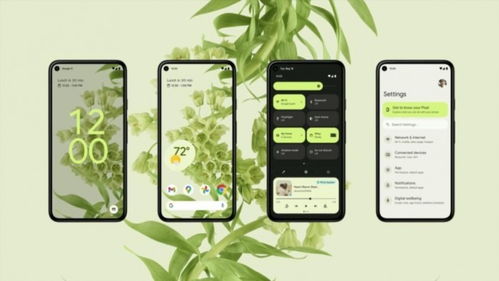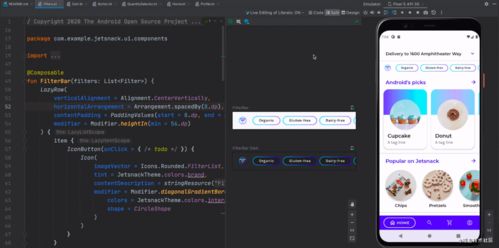Understanding AR Features in Android: A Comprehensive Guide
Augmented Reality (AR) has become an integral part of the Android ecosystem, offering developers and users a new way to interact with their devices. In this detailed guide, we will explore the various AR features available in Android, how they work, and their potential applications.
What is ARCore?

ARCore is Google’s platform for building AR experiences on Android devices. It provides developers with the tools to create AR applications that can track motion and understand the environment, allowing for immersive experiences that blend the digital and physical worlds.
Key ARCore Features

ARCore offers several key features that make it a powerful tool for AR development:
| Feature | Description |
|---|---|
| Environmental Understanding | ARCore can detect flat surfaces, such as tables and floors, and can estimate the size and shape of the environment. |
| Light Estimation | ARCore can estimate the ambient light in the environment, which is important for adjusting the appearance of AR content. |
| Camera Tracking | ARCore can track the movement of the device’s camera, allowing for real-time updates to the AR experience. |
| World Tracking | ARCore can track the position and orientation of the device in the real world, enabling accurate placement of AR content. |
Creating AR Experiences with ARCore

Developers can create AR experiences using ARCore by following these steps:
- Set up the development environment: Install Android Studio and the ARCore SDK.
- Initialize ARCore: Use the ARCore initialization code to set up ARCore in your application.
- Track the environment: Use ARCore’s tracking features to detect flat surfaces and estimate the environment.
- Place AR content: Use ARCore’s world tracking to place AR content in the real world.
- Interact with AR content: Implement touch and gesture recognition to allow users to interact with the AR content.
ARKit vs ARCore
While ARCore is Google’s AR platform for Android, Apple has its own AR platform called ARKit. Here’s a comparison of the two:
| Feature | ARCore | ARKit |
|---|---|---|
| Platform Support | Android devices with ARCore support | iPhone and iPad with A9 or newer processors |
| Tracking | Camera tracking, environmental understanding | Camera tracking, environmental understanding |
| Performance | Varies by device | High performance on supported devices |
| Community and Resources | Active community, extensive documentation | Active community, extensive documentation |
AR Features in Android: Use Cases
AR features in Android can be used in a variety of applications, including:
- Education: AR can be used to create interactive educational experiences, such as virtual dissections or historical reenactments.
- Entertainment: AR games and apps can provide immersive experiences that go beyond traditional gaming.
- Retail: AR can be used to provide virtual try-ons or product demonstrations in retail environments.
- Real Estate: AR can be used to create virtual tours of properties, allowing potential buyers to see the space before visiting in person.
Conclusion
AR features in Android offer a wide range of possibilities for developers and users alike. With platforms like ARCore, creating immersive AR experiences has never been easier. As the technology continues to evolve, we can expect to see even more





